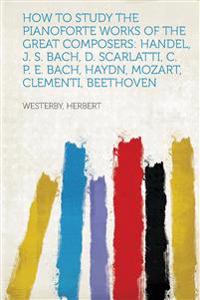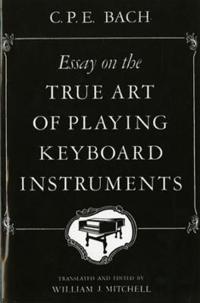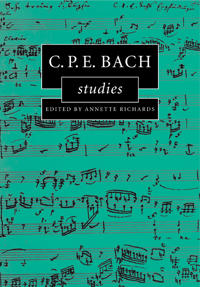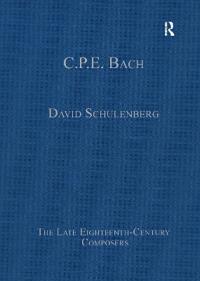How to Study the Pianoforte Works of the Great Composers: Handel, J. S. Bach, D. Scarlatti, C. P. E. Bach, Haydn, Mozart, Clementi, Beethoven (häftad)
ISBN: 9781313436304 - UTGIVEN: 2013-01Essay on the True Art of Playing Keyboard Instruments (Pocket)
avC. P. E. Bach
ISBN: 9780393097160 - UTGIVEN: 194811J. S. Bach's musician son explains the technique for performing eighteenth-century compositions, discussing fingering, embellishments, bass, and accompaniment[...]
C.P.E. Bach Studies (Häftad)
ISBN: 9780521120432 - UTGIVEN: 200910C. P. E. Bach Studies collects together nine wide-ranging essays by leading scholars of eighteenth-century music. Offering fresh perspectives on one of the towering figures of the period, the authors explore Bach's music in its cultural contexts, and show in diverse and complementary ways the recipr[...]
C. P. E. Bach
ISBN: 9781472443373 - UTGIVEN: 2015-11The second son of Johann Sebastian Bach, C.P.E. Bach was an important composer in his own right, as well as a writer and performer on keyboard instruments. He composed roughly a thousand works in all the leading genres of the period, with the exception of opera, and Haydn, Mozart and Beethoven all a[...]
C.P.E. Bach: Concerto in D Minor: Piano [With 2 CDs] (Okänt format)
ISBN: 9781596150836 - UTGIVEN: 2006-11(Music Minus One). Composed in 1748, this gorgeous and increasingly popular piece demonstrates the brilliance of Carl Philipp Emanuel Bach. It transcends its late baroque/early classical timeframe and is pervaded by a pensive quality and even a predisposition toward a romantic sensibility. Highly re[...]







